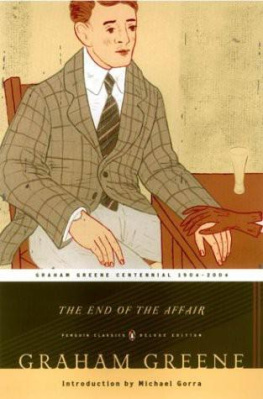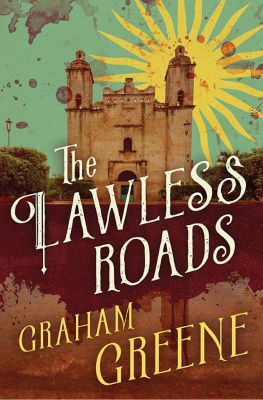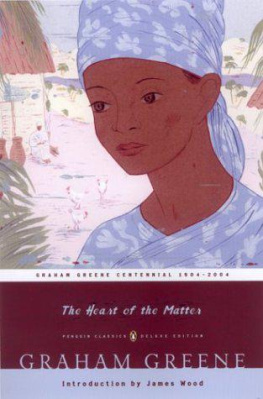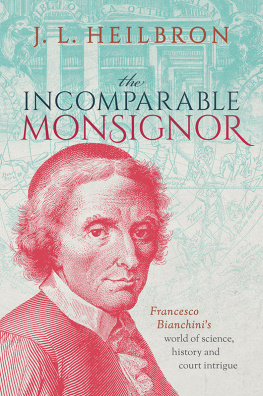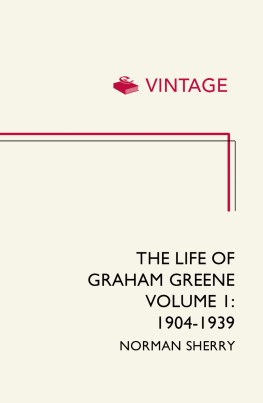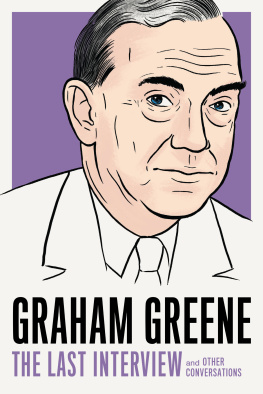
Monsignor Quixote
Graham Greene
"There is nothing either good or bad, but thinking makes it so."
WILLIAM SHAKESPEARE
For Father Leopoldo Duran, Aurelio Verde, Octavio Victoria and Miguel Fernandez, my companions on the roads of Spain, and to Tom Burns who inspired my first visit there in 1946.
ACKNOWLEDGEMENT
I acknowledge with gratitude my debt to J.M. Cohen's translation in the Penguin Classics of Cervantes' /Don Quixote./ G. G.
PART ONE
I
HOW FATHER QUIXOTE BECAME A MONSIGNOR
It happened this way. Father Quixote had ordered his solitary lunch from his housekeeper and set off to buy wine at a local cooperative eight kilometres away from El Toboso on the main road to Valencia. It was a day when the heat stood and quivered on the dry fields, and there was no air-conditioning in his little Seat 600 which he had bought, already second hand, eight years before. As he drove he thought sadly of the day when he would have to find a new car. A dog's years can be multiplied by seven to equal a man's, and by that calculation his car would still be in early middle age, but he noticed how already his parishioners began to regard his Seat as almost senile.
"You can't trust it, Don Quixote," they would warn him and he could only reply, "It has been with me through many bad days, and I pray God that it may survive me." So many of his prayers had remained unanswered that he had hopes that this one prayer of his had lodged all the time like wax in the Eternal ear.
He could see where the main road lay by reason of the small dust puffs raised by the passing cars. As he drove he worried about the fate of the Seat which he called in memory of his ancestor "my Rocinante". He couldn't bear the thought of his little car rusting on a scrap heap. He had sometimes thought of buying a small plot of land and leaving it as an inheritance to one of his parishioners on condition that a sheltered corner be reserved for his car to rest in, but there was not one parishioner whom he could trust to carry out his wish, and in any case a slow death by rust could not be avoided and perhaps a crusher at a scrapyard would be a more merciful end. Thinking of all this for the hundredth time he nearly ran into a stationary black Mercedes which was parked round the corner on the main road. He assumed that the dark-clothed figure at the wheel was taking a rest on the long drive from Valencia to Madrid, and he went on to buy his jar of wine at the collective without pausing; it was only as he returned that he became aware of a white Roman collar, like a handkerchief signalling distress. How on earth, he wondered, could one of his brother priests afford a Mercedes? But when he drew up he noticed a purple bib below the collar which denoted at least a monsignor if not a bishop.
Father Quixote had reason to be afraid of bishops; he was well aware how much his own bishop, who regarded him in spite of his distinguished ancestry as little better than a peasant, disliked him.
"How can he be descended from a fictional character?" he had demanded in a private conversation which had been promptly reported to Father Quixote.
The man to whom the bishop had spoken asked with surprise, "A /fictional /character?"
"A character in a novel by an overrated writer called Cervantesa novel moreover with many disgusting passages which in the days of the Generalissimo would not even have passed the censor."
"But, Your Excellency, you can see the house of Dulcinea in El Toboso. There it is marked on a plaque; the house of Dulcinea."
"A trap for tourists. Why," the bishop went on with asperity, "Quixote is not even a Spanish patronymic. Cervantes himself says the surname was probably Quixada or Quesada or even Quexana, and on his deathbed Quixote calls himself Quixano."
"I can see that you have read the book then, Your Excellency."
"I have never got beyond the first chapter. Although of course I have glanced at the last. My usual habit with novels."
"Perhaps some ancestor of the father was called Quixada or Quexana."
"Men of that class have no ancestors."
It was with trepidation then that Father Quixote introduced himself to the high clerical figure in the distinguished Mercedes. "My name is Padre Quixote, monsignor. Can I be of any service?"
"You certainly can, my friend. I am the Bishop of Motopo" he spoke with a strong Italian accent.
"Bishop of Motopo?"
"/In partibus infidelium/, my friend. Is there a garage near here? My car refuses to go on any further, and if there should be a restaurantmy stomach begins to clamour for food."
"There is a garage in my village, but it is closed because of a funeralthe mother-in-law of the garagist has died."
"May she rest in peace," the bishop said automatically, clutching at his pectoral cross. He added, "What a confounded nuisance."
"He'll be back in a few hours."
"A few hours! Is there a restaurant anywhere near?"
"Monsignor, if you would honour me by sharing my humble lunch... the restaurant in El Toboso is not to be recommended, either for the food or for the wine."
"A glass of wine is essential in my situation."
"I can offer you a good little local wine and if you would be contented with a simple steak... and a salad. My housekeeper always prepares more than I can eat."
"My friend, you certainly prove to be my guardian angel in disguise. Let us go."
The front seat of Father Quixote's car was occupied by the jar of wine, but the bishop insisted on crouchinghe was a very tall manin the back. "We cannot disturb the wine," he said.
"It is not an important wine, monsignor, and you will be much more comfortable..."
"No wine can be regarded as unimportant, my friend, since the marriage at Cana."
Father Quixote felt rebuked and silence fell between them until they arrived at his small house near the church. He was much relieved when the bishop, who had to stoop to enter the door which led directly into the priest's parlour, remarked, "It is an honour for me to be a guest in the house of Don Quixote."
"My bishop does not approve of the book."
"Holiness and literary appreciation don't always go together."
The bishop went to the bookshelf where Father Quixote kept his missal, his breviary, the New Testament, a few tattered volumes of a theological kind, the relics of his studies, and some works by his favourite saints.
"If you will excuse me, monsignor..."
Father Quixote went to find his housekeeper in the kitchen which served also as her bedroom, and it must be admitted the kitchen sink was her only washbasin. She was a square woman with protruding teeth and an embryo moustache; she trusted no one living, but had a certain regard for the saints, the female ones. Her name was Teresa, and nobody in El Toboso had thought to nickname her Dulcinea, since no one but the Mayor, who was reputed to be Communist, and the owner of the restaurant had read Cervantes' work, and it was doubtful if the latter had got much further than the battle with the windmills.
"Teresa," Father Quixote said, "we have a guest for lunch which must be prepared quickly."
"There is only your steak and a salad, and what remains of the manchego cheese."
"My steak is always big enough for two, and the bishop is an amiable man."
"The bishop? I won't serve him."
"Not /our /bishop. An Italian. A very courteous man."
He explained the situation in which he had found the bishop.
"But the steak..." Teresa said.
"What about the steak?"
"You can't give the bishop horsemeat."
"My steak is horsemeat?"
"It always has been. How can I give you beef with the money you allow me?"
Next page

